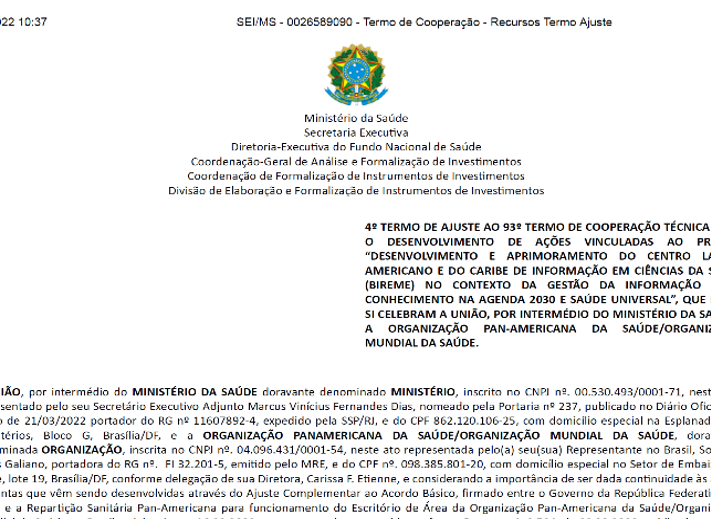In the context of the Technical Cooperation Term 93 (TC93), the implementation of the Virtual Health Library (VHL) for Indigenous Populations is underway in demarcated areas, starting, at first with Brazil, but potentially at the regional level, in coordination with the Latin American and Caribbean Center on Health Sciences Information/Pan American Health Organization/World Health Organization (BIREME/PAHO/WHO) and the Ministry of Health of Brazil, through the Executive Secretariat (SE) and Special Secretariat in Indigenous Health (SESAI).
The development of strategies to expand the access to and use of scientific and technical information in the health services offered to the indigenous population, contributes to the strengthening of the Unified Health System (SUS) and the improvement of the Indigenous Health Care Subsystem, which are the main objectives of this initiative.
 The Indigenous Health VHL, as a strategy, model, and operational framework for BIREME/PAHO/WHO technical cooperation in health information and knowledge management, will be the basis for the project’s workstreams and macro-activities, targeting health team professionals that work directly in the attention and care of the indigenous population living in indigenous villages in Brazil. In this sense, the macro activities of the project are directly related to meeting the information needs of this target audience and aligned with the context in which the teams work.
The Indigenous Health VHL, as a strategy, model, and operational framework for BIREME/PAHO/WHO technical cooperation in health information and knowledge management, will be the basis for the project’s workstreams and macro-activities, targeting health team professionals that work directly in the attention and care of the indigenous population living in indigenous villages in Brazil. In this sense, the macro activities of the project are directly related to meeting the information needs of this target audience and aligned with the context in which the teams work.
- Analysis and prospection of information technologies and methodologies of the VHL model for the implementation of the Indigenous Health VHL;
- Analysis of knowledge management actions related to national indigenous health policies and strategies, based on the mapping and analysis of scientific and technical information available in the VHL;
- Bibliographic management of the collection of the Special Secretariat for Indigenous Health (SESAI), considering the organization and cataloging of technical and scientific publications; and
- Exchange of experiences and dissemination of knowledge between health systems and services promoted and shared within the scope of national and international cooperation.
Information products and services will also be developed (for example, Windows of Knowledge, Collections in the e-BlueInfo App, Evidence Maps, and other mobile applications) in addition to information sources accessible in the Indigenous Health VHL that will contribute to the development and improvement of indigenous peoples’ health through the promotion and access to scientific and technical information relevant to the context of SUS and the Indigenous Health Care Subsystem, its producers, intermediaries, and information users.